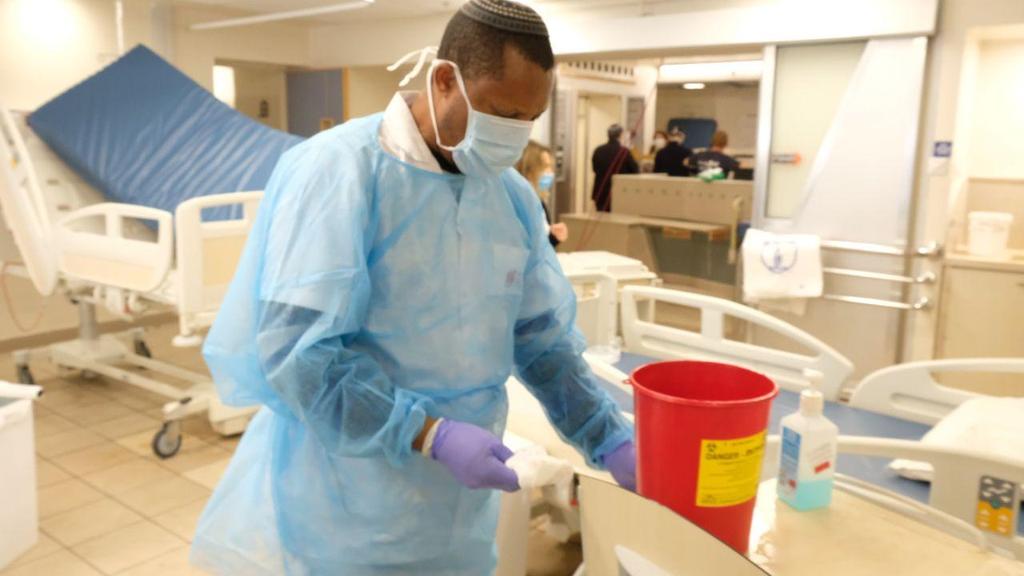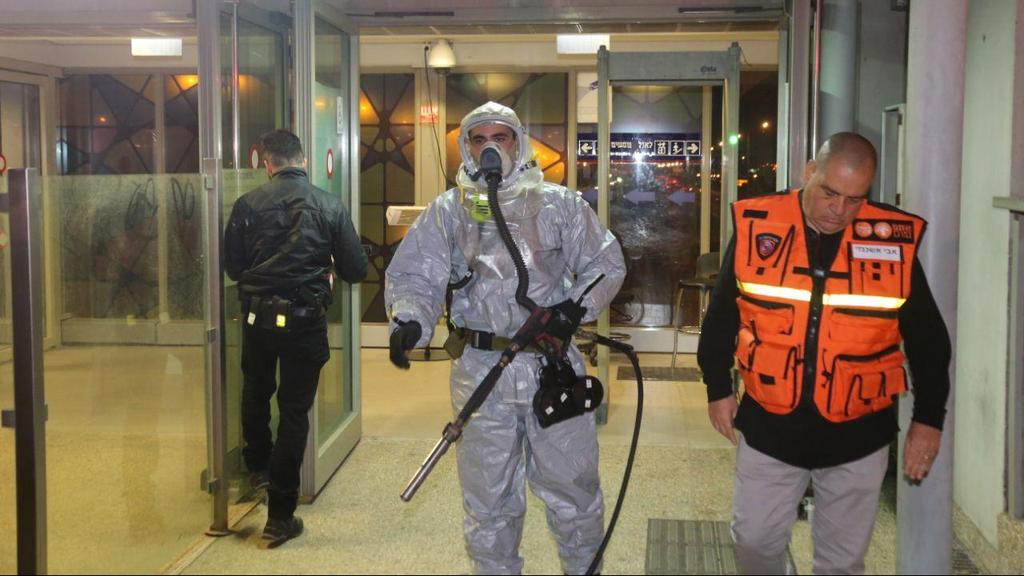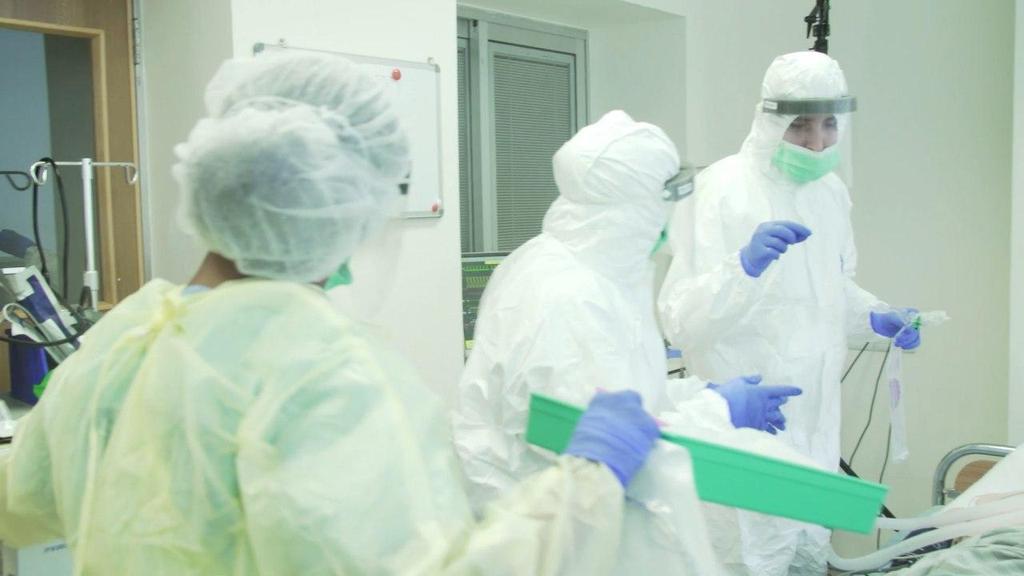Getting your Trinity Audio player ready...
My fellow physicians and I are acutely aware of the extent of the emergency through which we are living and fully agree with the Health Ministry that medical teams must be protected from infection with the coronavirus, a directive that is unfortunately only partially enforced.
We believe there must be dedicated and separate spaces in every hospital that will allow treatment with the proper equipment, including ventilators, for those in need. This will contain the spread of the disease, which is the only way we can win this battle.
3 View gallery


Ichilov Hospital prepares a special ward for coronavirus patients
(Photo: Shaul Golan)
But there must be a well thought out administration of these needs so that the collateral damage that we are already experiencing, to patients who are in need of care that is not related to the coronavirus is kept to a minimum.
This includes patients whose care is being postponed or marginalized and whose prognosis for recovery could be irreparably compromised and who could even face death.
These people require real medical care, not only in cases of cancer or heart disease, but in many other ailments as well.
If we do not take the time to consider this problem, we may soon find that while we were perhaps successful in minimizing disease and even death from the coronavirus, we would be paying the price in fatalities as a result of other illnesses at a rate we have never seen before, including such cases in which medical science had invested years of knowledge and resources to overcome.
I raise this issue now because there are limitations imposed on doctors and medical teams by the people in the position to make decisions – and I still do not know who they are.
We are being told to follow criteria when deciding who we can treat. We are being told by others what constitutes necessary medical intervention and what does not.
We are also forced into quarantine having come into brief contact with coronavirus patients.
I myself am writing from my quarantine after 12 days of isolation. I went into the ER to check on a dear friend who had been confirmed positive for coronavirus. I only saw him for a couple of minutes but was forced into isolation nonetheless.
People in the decision-making positions must urgently modify their instructions to the medical establishment so that dedicated coronavirus treatment beds are prepared away from the general population, and at the same time ongoing care can be provided to the many patients who continue to seek our aid.
Medical teams must, of course, be protected from infection but a brief encounter with a coronavirus patient should not automatically be followed by a quarantine period. The chances that I was infected by my minutes-long visit with my friend are minimal.
Only by adopting this manner of managing our health system will we be able to function at our best, treat those in urgent need while minimizing the dramatic rise in fatalities that many of our patients will be facing without the ongoing care they need.
3 View gallery


Disinfectant against coronavirus is sprayed at a Rishon Lezion train station
(Photo: Moti Kimchi)
I believe the collapse of our medical system, which we are already witnessing, can be mitigated if we adopt the necessary measures.
I wish all of us success in the face of this challenge and hope we show the necessary wisdom, responsibility and above all commitment needed in our joint mission to win this war.
Prof. Ariel Finkelstein is Director of Cardiac Catheterization at Ichilov Hospital, Tel Aviv


